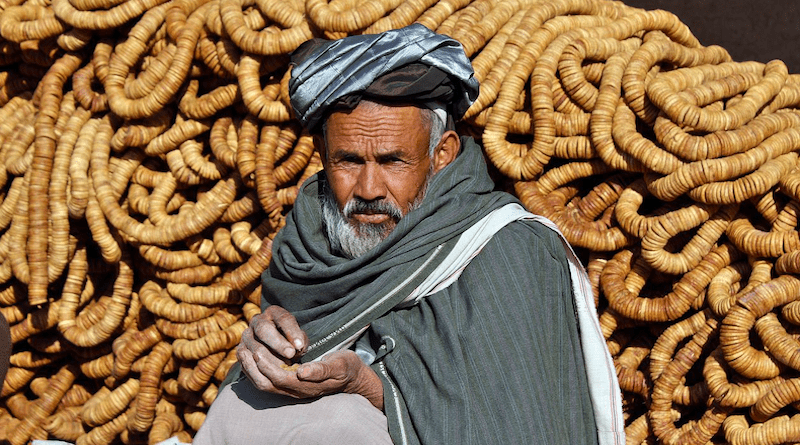Pakistan: Farmers Forcibly Evicted For Urban Project, Says HRW
Pakistan authorities are forcibly evicting thousands of farmers near the city of Lahore for a massive infrastructure project, Human Rights Watch said Tuesday. The authorities should enforce environmental protections and reform colonial-era laws that grant the government broad powers to acquire land for private as well as public use.
The Ravi Riverfront Urban Development Project was begun in August 2020 by then-Prime Minister Imran Khan, who claimed it would address Lahore’s many problems – pollution, sewage, water, housing, and employment – while reviving its “lost glory.” The 5 trillion Pakistani Rupi (PKR, at the time of writing US$7 billion) government project, covering more than 100,000 acres along the Ravi River in Punjab province, is among the largest infrastructure projects in Pakistan. Proposed plans would create the “world’s largest riverfront city,” with a population of 12 million.
“Punjab provincial authorities have harassed and threatened area farmers to deprive them of their homes and livelihoods,” said Patricia Gossman, associate Asia director at Human Rights Watch. “The authorities need to ensure that government projects minimize displacement and loss of income, but also minimize environmental harm and flooding risks.”
To advance the Ravi River project, the government has acted on behalf of private developers to acquire the necessary property, 85 percent of which is agricultural land occupied by nearly one million farmers, laborers, and business owners. Affected farmers who have challenged the legality of the land seizures have faced intimidation and criminal charges brought by the governmental Ravi Urban Development Authority (RUDA), provincial authorities, and project developers, even as these legal challenges remain pending in court.
Environmental groups have raised concerns that the project’s proposed changes to the flow of the Ravi River could significantly increase the risks of flooding. Pakistan’s Sindh province experienced catastrophic floods in mid-2022.
Between February 1 and March 1, 2023, Human Rights Watch spoke to 14 farmers who said they have been evicted or threatened with eviction in Lahore since August 2020, as well as 8 lawyers, environmental rights activists, and journalists.
Since 2020, the authorities have criminally charged more than 100 farmers with resisting or refusing to hand over land they occupied. Accounts by farmers along with corroborating photos and video show evidence of intimidation, harassment, and use of force to evict farmers. The exact number of people affected or forcibly evicted has been difficult to determine, including by groups representing farmers.
In January 2022, the Lahore High Court ruled that the Ravi River project was unconstitutional. The court said that it violated domestic laws concerning the forcible acquisition of land, the process for compensating those displaced, and the project’s environmental impact assessment. The following month, the Supreme Court partially overruled the Lahore High Court decision and allowed the government to continue development only on the land it had already acquired and for which it had paid compensation.
Farmers and activists have alleged that despite the Supreme Court ruling, the Development Authority has continued to seize land. In November 2022, they petitioned the High Court to have the Supreme Court’s decision enforced. The Development Authority has denied forcibly evicting farmers.
In October 2022, the Development Authority filed criminal cases against at least nine farmers, claiming that they resisted handing over lands and houses that the government legally acquired. The farmers have challenged this, saying that they had not consented to the acquisition and had received no compensation from the government.
One farmer told Human Rights Watch that his family had lived on the land for three generations and the government was not only forcibly evicting them but also refusing to pay adequate compensation. A 60-year-old farmer whose land had been seized said: “The government says they want to build a new city, but why do they need to destroy the city and lives that we already have to build a new city?”
In the Ravi River area, as in much of rural Pakistan, farming is central to economic survival for families and communities. When farm families are deprived of their livelihood, the consequences are often far-reaching. Without the ability to cultivate land and sell crops, farmers are commonly forced into jobs for which they lack skills and produce far less income, ultimately driving them into poverty. One farmer said: “The government is taking over fertile land that] provides food not only for the farmers but for the entire city of Lahore and replacing it with a concrete jungle that only benefits government officials, property developers, and rich people.”
Human Rights Watch interviewed several families whose land and livelihood was taken away, leaving the farmers and their families destitute and insecure. As Pakistan looks to develop new infrastructure, it needs to ensure that it protects its citizens’ rights to land and livelihood.
“Pakistani authorities urgently need to reform colonial-era land laws to ensure that its laws are equitable, transparent, and in line with Pakistan’s international obligations,” Gossman said. “The government has an obligation to compensate for loss of land and provide for the resettlement and rehabilitation of those displaced.”

